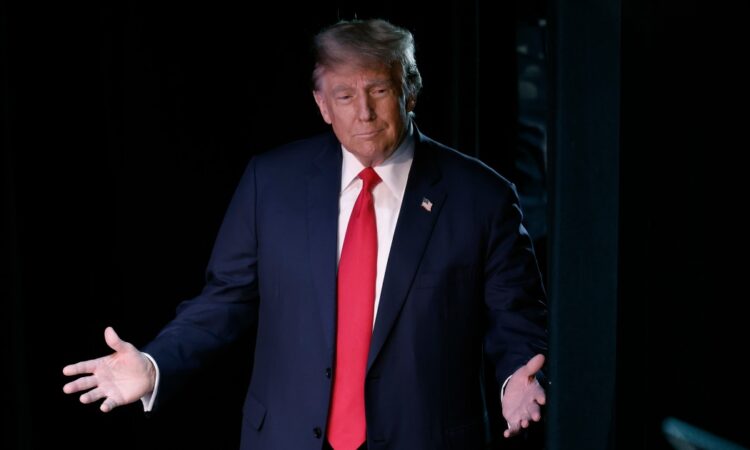
For those rooting for the U.S. economy, there’s been plenty of good news worth celebrating lately. The combination of historically low unemployment, economic growth, shrinking inflation, rising wages, and a rising stock market have given Americans renewed optimism about the health of the resilient economy.
Just as notably, the economy in the United States isn’t just strong from a historical perspective, it’s also strong by an international perspective. The Washington Post reported over the weekend on an underappreciated detail: Our economy is outpacing our peer nations abroad, which means Americans are experiencing “the world’s best recovery.”
The European economy, hobbled by unfamiliar weakness in Germany, is barely growing. China is struggling to recapture its sizzle. And Japan continues to disappoint. But in the United States, it’s a different story. Here, despite lingering consumer angst over inflation, the surprisingly strong economy is outperforming all of its major trading partners.
The Post quoted Claudia Sahm, a former Federal Reserve economist, who said, “The U.S. has really come out of this into a place of strength and is moving forward like covid never happened. We earned this; it wasn’t just a fluke.”
From a purely political perspective, this creates some serious challenges for Republicans. Part of the problem, of course, is that GOP officials were hoping to capitalize on perceptions of a weak economy in this year’s elections, and reality is clearly getting in the way.
Making matters worse, the reason the U.S. economy is outpacing recoveries elsewhere is that the federal government has invested heavily in the economy in recent years — which is necessarily at odds with Republican orthodoxy that says government spending does not fuel growth.
But for Trump, the challenges are especially acute.
As regular readers might recall, ahead of Election Day 2020, the then-president repeatedly warned the public that if Joe Biden were elected, the U.S. economy would collapse. His rhetoric wasn’t based on anything real or substantive; he just hoped to scare voters into re-electing him.
It led the Republican to declare at the final debate of the 2020 cycle, “They say the stock market will rule if I’m elected. If he’s elected, the stock market will crash.” Around the same time, Trump also told supporters that Democratic policies would “unleash an economic disaster of epic proportions” and force the country “into depression.”
Everything he said and predicted was wrong — which leaves the GOP’s presumptive nominee in a bit of a bind.
On the one hand, Trump appears desperate to convince people that the healthy U.S. economy isn’t healthy at all. On Dec. 29, he published an item to his social media account assuring the public that the national economy is “TERRIBLE,” the truth notwithstanding, adding a prediction that if President Biden is re-elected, we’ll suffer a “‘CRASH’ WORSE THAN THAT OF 1929 — A GREAT DEPRESSION!!!”
The former president soon after campaigned in New Hampshire and described a dystopia that bore no resemblance to our reality. “[B]anks are collapsing,” Trump said, pointing to events that are unfolding only in his imagination. He added, “We are a nation whose economy is collapsing into a cesspool of ruin, whose supply chain is broken, whose stores are not stocked.”
None of this was even remotely true. It was also soon contradicted by Trump’s own attempts to claim credit for good economic news. CNBC reported:
Former President Donald Trump on Monday admitted that the stock market is on the rise under his successor, President Joe Biden — but Trump still tried to take credit for it. “THIS IS THE TRUMP STOCK MARKET,” Trump wrote in an all-caps Truth Social post.
So let’s take stock of what the likely Republican presidential nominee wants voters to believe. First, the economy is terrible, and people should definitely blame Biden. Second, parts of the economy are great, and people should definitely credit Trump.
And third, when people see economic data that might make them feel better about the resilient U.S. economy, they should assume that the figures are “fake,” unless Trump likes the data, in which case he’ll claim credit for the good news.
The former president, impervious to shame, is pushing each of these lines simultaneously, creating an utterly incoherent message.






